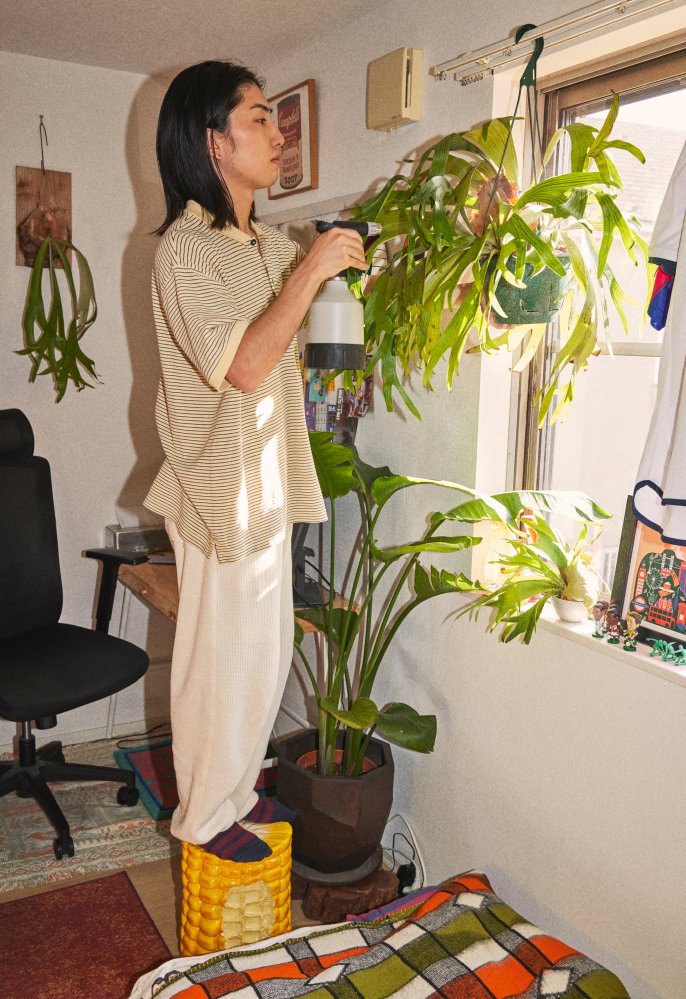Living within our means places an expected focus on affordability. The rising cost of living can feel like a hindrance to the aspirations of living a healthy and sustainable life.
Zero waste or zero spend?
A life that makes room for healthy eating, personal wellbeing and sustainability is part of living well. However, many households equate living well with higher incomes.
Living within our means places an expected focus on affordability. The rising cost of living can feel like a hindrance to the aspirations of living a healthy and sustainable life. 75% of us feel that environmentally friendly products have become more expensive in the past 12 months1. The need for security, control, and comfort are at play here.
The tension between living well or living within our means can lead to a feeling that a choice must be made. 48% of us find it too expensive to do more to help reduce climate change2.
However, a balanced life at home doesn’t always require hefty expenses. A ’back to basics’ approach to health, sustainability and saving the planet’s resources might be the key to finding harmony.

Different approaches to building better mental health
Living well
Needs being met
- Nurturing
- Aspirations
Looking after the planet – good for home
Living well balances individual wellbeing with planetary health. Our research shows that the two are mutually reinforcing. 72% of us who think our homes help us live sustainably, feel positive about our current life at home.
Nature plays a powerful role as well. More than 20% of us connect with nature as a way to feel content and at ease.
Tidiness plays a key role
Whilst keeping the home tidy is often seen as a chore, it does have its upsides. As many as 40% of people agree that having a tidy, organised home helps them feel content and at ease. It creates a sense of accomplishment and calm that makes the hard work worth it.
Looking after the planet – good for health
Living sustainably is good for mental and physical health. One of the benefits of living through a global pandemic may be that it reminds us of the importance of our bodies and staying active. Almost 18% of us think exercising helps to maintain wellbeing at home. 30% of us say that an ideal home must help us to be physically or mentally stronger. Home plays a pivotal role in fostering wellbeing.

Doing less helps to fulfil the need for nurturing. It allows us to step back from the hustle and bustle of the outside world.
Top 5 countries that say not being financially independent prevents them from feeling in control
Living within our means
Needs being met
- Security
- Control
- Comfort
Can I afford it?
For some, living well at home is challenged by household budgets and affordable living. 26% of us feel a loss of control when we do not have enough money to take care of our home. For people with lower incomes, the figure rises to 30%. Affordable living is a priority, and for many, sustainable solutions are seen as having a price premium. Those who can live sustainably are often homeowners. Likewise, there is an increasing health divide between those with high and low incomes.
Back to basics
Living well doesn’t have to break the bank. Going back to basics allows people to embrace uncomplicated, cost-effective methods to enhance their life quality. At the same time, it cares for our health and the planet and is an ideal many are already searching for. 19% of us say our ideal home would help us to be more self-sufficient with food and energy. Even the simple act of enjoying nature at home can bring powerful benefits with 20% saying that accessing green space is important to mental wellbeing.
Back-to-basics lifestyle changes for healthier, affordable and more sustainable living
- Accessing outdoor space
- Cooking at home with seasonal, local, affordable food
- Reducing food waste
- Eating vegan or vegetarian for some or all meals
- Buying second-hand
- Avoiding plastic
- Socialising at home instead of going out
Conclusion
Living well is about living a healthy life and living sustainably. The two are intrinsically linked. Going back to basics can make it easier to achieve at home, without breaking the bank.
1-2. People & Planet Consumer Insights and Trends 2023, with GlobeScan

